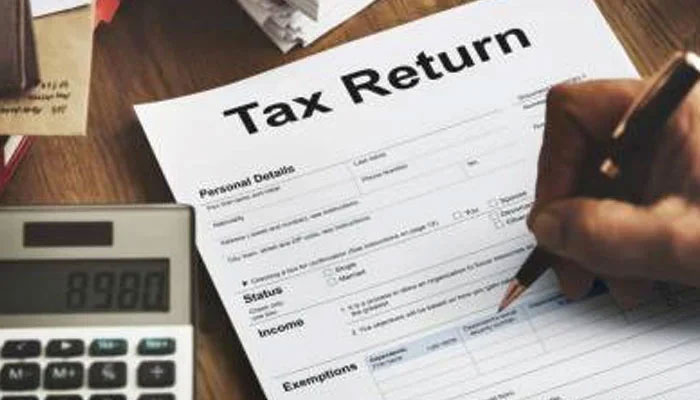No service
Government has reportedly been considering blocking mobile phone SIMs of over 500,000 tax return non-filers
Over the last few years, tax revenue has become a buzzword in the country, with government representatives presenting increased tax collection as the panacea for all economic ills. While that is true – and an expanded tax net can help Pakistan dilute its reliance on external loans – the manner usually adopted smacks of arbitrariness. In the latest knee-jerk idea, the government has reportedly been considering blocking mobile phone SIMs of over 500,000 tax return non-filers. Economists and financial experts have already called this move a failed strategy, and now cellular mobile operators have also recorded their opposition to the proposal, calling it an ‘illegal’ move. It seems the government did not consult the stakeholders before announcing this policy – which is odd since it seems this ‘policy’ had buy-in from the higher finance authorities too. One wonders why they thought they wouldn’t face a challenge to this policy.
What officials fail to understand is that SIMs help most people build their digital identities. Raast, an instant payment system developed by the State Bank of Pakistan, relies on mobile phone numbers to create people’s identities, allowing them to transfer money more conveniently. At banks, mobile phone numbers are a unique identity for consumers, allowing them to carry out sensitive transactions securely. Banning SIMs would also halt these financial transactions, important for keeping the economy running. It is also important for officials to realize that Pakistan is on its journey towards connecting its people. Telecom companies are investing heavily in improving infrastructure to introduce 5G services. In 2023, total data usage closed at 20,325 Petabytes, according to the State of Apps report published by Data Darbar. Mobile accounted for 53.6 per cent of this usage. Average mobile data has also moved to 7.5GB in the country.
As one industry treads towards growth, any hasty decision taken by a ministry will result in negative consequences. A good way to make people file their tax returns is to make the process easier. At present, the UI of the FBR website is confusing, with people having to rely on expensive accountants to file their returns. For starters, the government should set up help centres across different parts of the country, helping people with filing their returns. The government has already introduced ‘punishments’ for non-filers – they are subject to higher taxes, for instance. But these measures have not resulted in an increase in the number of filers. What we need is to make the process user-friendly with less reliance on external parties. And while tax evaders must be held accountable, arbitrary measures that hurt a thriving industry must be rejected. The government may also wish to look at the elephant sitting pretty in the room: the hundreds of thousands who are not taxpayers at all. Perhaps, going after them would be a more worthwhile pursuit?
-
 Funeral Home Owner Sentenced To 40 Years For Selling Corpses, Faking Ashes
Funeral Home Owner Sentenced To 40 Years For Selling Corpses, Faking Ashes -
 Why Is Thor Portrayed Differently In Marvel Movies?
Why Is Thor Portrayed Differently In Marvel Movies? -
 Dutch Seismologist Hints At 'surprise’ Quake In Coming Days
Dutch Seismologist Hints At 'surprise’ Quake In Coming Days -
 Australia’s Liberal-National Coalition Reunites After Brief Split Over Hate Laws
Australia’s Liberal-National Coalition Reunites After Brief Split Over Hate Laws -
 DC Director Gives Hopeful Message As Questions Raised Over 'Blue Beetle's Future
DC Director Gives Hopeful Message As Questions Raised Over 'Blue Beetle's Future -
 King Charles New Plans For Andrew In Norfolk Exposed
King Charles New Plans For Andrew In Norfolk Exposed -
 What You Need To Know About Ischemic Stroke
What You Need To Know About Ischemic Stroke -
 Shocking Reason Behind Type 2 Diabetes Revealed By Scientists
Shocking Reason Behind Type 2 Diabetes Revealed By Scientists -
 SpaceX Cleared For NASA Crew-12 Launch After Falcon 9 Review
SpaceX Cleared For NASA Crew-12 Launch After Falcon 9 Review -
 Meghan Markle Gives Old Hollywood Vibes In New Photos At Glitzy Event
Meghan Markle Gives Old Hollywood Vibes In New Photos At Glitzy Event -
 Simple 'finger Test' Unveils Lung Cancer Diagnosis
Simple 'finger Test' Unveils Lung Cancer Diagnosis -
 Groundbreaking Treatment For Sepsis Emerges In New Study
Groundbreaking Treatment For Sepsis Emerges In New Study -
 Roblox Blocked In Egypt Sparks Debate Over Child Safety And Digital Access
Roblox Blocked In Egypt Sparks Debate Over Child Safety And Digital Access -
 Savannah Guthrie Addresses Ransom Demands Made By Her Mother Nancy's Kidnappers
Savannah Guthrie Addresses Ransom Demands Made By Her Mother Nancy's Kidnappers -
 OpenAI Reportedly Working On AI-powered Earbuds As First Hardware Product
OpenAI Reportedly Working On AI-powered Earbuds As First Hardware Product -
 Andrew, Sarah Ferguson Refuse King Charles Request: 'Raising Eyebrows Inside Palace'
Andrew, Sarah Ferguson Refuse King Charles Request: 'Raising Eyebrows Inside Palace'




